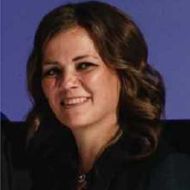- A
- A
- A
- ABC
- ABC
- ABC
- А
- А
- А
- А
- А
- HSE University
- Faculty of Law
- School of Legal Regulation of Business
- Courses
- International Intellectual Property Law, 2021/22 Academic year
3 Bolshoi Tryokhsvyatitelsky Pereulok, room 411
109028, Moscow
Phone: +7(495) 772-95-90,
ext. 22755
3 Bolshoi Tryokhsvyatitelsky Pereulok, room 411
Phone: +7(495) 772-95-90, ext. 22746
HSE University’s School of Legal Regulation of Business was established in 2020. It provides instruction in academic areas covered by the Faculty of Law: private international law, corporate and business law. Currently, the school employs more than 50 highly qualified specialists in various fields of law, including private international law, Russian and international corporate law, and Russian business law.
We are focused on teaching legal disciplines at the University at the same level as the world's top universities, taking into account the specifics of students’ curriculum at various degree programmes. The school is actively engaged in the provision of several undergraduate and graduate programmes at the University.
Arblaster M., Gareev R., Górski J. et al.
NY; L.: Routledge, 2025.
HSE University Journal of International Law. 2025. Vol. 3. No. 2. P. 79-99.
Kasatkina A., Gareev R.
In bk.: Aviation Law and Governance. Navigating Global Challenges and Conflicts. NY; L.: Routledge, 2025. Ch. 2. P. 89-116.
 THE SOCIAL HISTORY OF LAW AS A FACTOR OF THE RULE OF LAW
THE SOCIAL HISTORY OF LAW AS A FACTOR OF THE RULE OF LAW
Fogelson Y. B., Poldnikov D.
Law. LAW. Высшая школа экономики, 2021. No. WP BRP 98/LAW/2021.
International Intellectual Property Law
- About
- About
- Key Figures & Facts
- Sustainability at HSE University
- Faculties & Departments
- International Partnerships
- Faculty & Staff
- HSE Buildings
- HSE University for Persons with Disabilities
- Public Enquiries
- Studies
- Admissions
- Programme Catalogue
- Undergraduate
- Graduate
- Exchange Programmes
- Summer Schools
- Semester in Moscow
- Business Internship
- © HSE University 1993–2025 Contacts Copyright Privacy Policy Site Map
- Edit



Instructors
Simonova, Anastasia
Fridman, Veronika
Course Syllabus
Abstract
Learning Objectives
Expected Learning Outcomes
Course Contents
Assessment Elements
Interim Assessment
Bibliography
Recommended Core Bibliography
Recommended Additional Bibliography
Authors